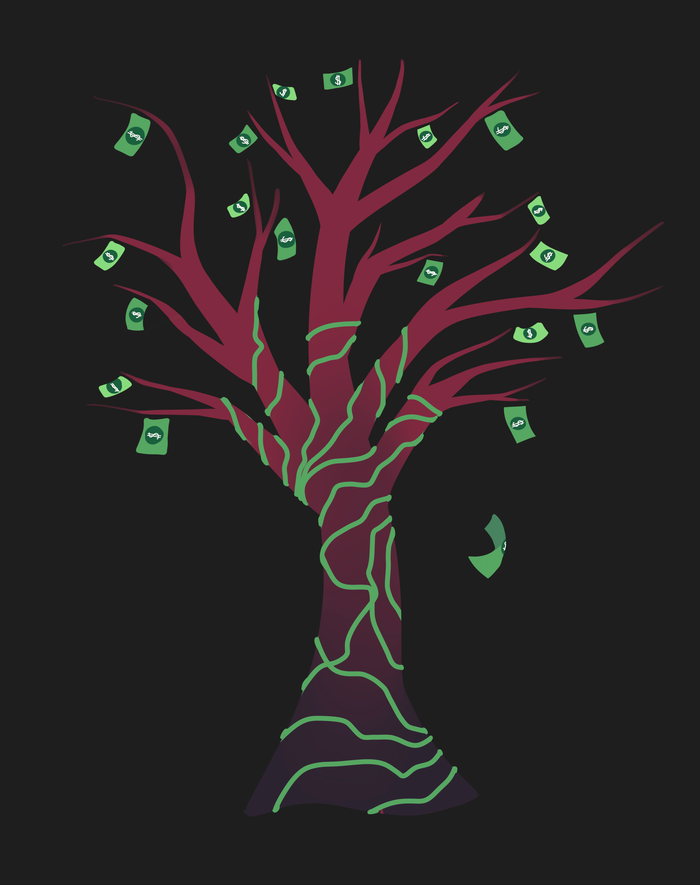To save forests, individual action isn’t enough
Deforestation has had devastating impacts on the Global South. Seth Daood explains why solutions should focus on corporations and governments, rather than individuals

It’s not infrequent that I find a targeted campaign on my social media informing me that I, personally, am the leading cause of deforestation. As much as I would love to have that much impact on the world – though perhaps not in such a negative way – I think it’s safe to say that receiving individual blame for a plethora of the world’s problems is an experience we are all accustomed to. I’m going to go out on a limb here and say that it’s not really all my fault, nor is it yours. Rather, it’s mainly the fault of large corporations that monopolise the destruction of rainforests for production. Whether that be the producers – JBS producing beef, Wilmar International Limited producing palm oil, Cargill producing soy – or the companies that go on to sell these products, like Unilever and Nestlé, putting pressure on individuals is a cowardly approach which allows corporations to use the public as a scapegoat for their damage. Furthermore, our independent choices don’t fundamentally change anything if those new resources we switch to are still harvested unsustainably – one of the largest meat and dairy substitutes is soy, but even this is leading to widespread deforestation and the displacement of indigenous communities across the globe.
“The first step is to change our views about the responsibility of controlling deforestation”
The Global South is disproportionately laden with the consequences which benefit the “developed” world. Indigenous lands across tropical rainforests are being sold off to private companies despite supposedly being protected, which leads to the destruction of their homes and families. This doesn’t even begin to touch upon the devastation caused to the biodiversity of non-human species – 80% of terrestrial species live in forests. However, deforestation due to land clearance for logging and agriculture ultimately leads to species loss through habitat destruction and fragmentation of once large-spanning forest areas. Over the last 150 years, the species composition within forests has changed significantly, and although some species actually increased in size, this comes at the cost of others drastically declining. Recent evidence has even shown that after primary forest is cleared, the regrowth is slower than predicted, and the secondary forest that replaces it is far less diverse.
So what can be done? I think the first step is to change our views about the responsibility of controlling deforestation. The responsibility lies with corporations to regulate their activities and not place profits over ecological prosperity; in the absence of them doing this (which appears to be the reality we live in), governments need to step up in their regulation of said companies. The sad fact of the matter is that the majority of unsustainable agriculture is actually very efficient, both in terms of production costs and profits, and as such, sustainable alternatives have to be supported by governments. This is why action cannot simply be on the individual level. If we are to stop deforestation, governments must call for products to be sustainably produced and even go as far as subsidising them, so that these industries have a chance of competing with already-established agricultural companies.
To support this change even further, governments need to consider rewriting the way we view economics entirely; whilst the alternatives are far from polished at the moment, they provide a good basis of where society can begin to shift from exploiting natural resources for economic gain to appreciating the intrinsic value of the earth and the people who occupy it. My proposal would be to move past the age-old notion of GDP and shift to something akin to the green GDP that was trialled and shut down rapidly in China, or the Genuine Progress Indicator to account for socio-environmental factors, not only economic ones. The ways in which we measure economies are to some degree arbitrary, and there’s no reason why, with the right safeguards in place, we can’t adapt and build upon what we already have.
All in all, the path of how we may contribute meaningfully to sustainable living is not clear on the individual level – it certainly is not the case that buying plant-milk will solve the problems altogether, even though this has the best intentions. It can be exhausting to realise that every effort you have taken to stop deforestation is having little impact. Unfortunately, every lifestyle choice is at risk of exploitation for profit margins, so by all means, keep buying the milk of your choice, whether that be nut, bean or dairy-based – just remember also to shift your awareness towards the people who actually hold the power to make meaningful differences. Economic prosperity is driving ecological devastation, and whilst your individual impact is a step in the right direction, it is by no means the end of the race!
 Comment / Plastic pubs: the problem with Cambridge alehouses 5 January 2026
Comment / Plastic pubs: the problem with Cambridge alehouses 5 January 2026 News / Cambridge businesses concerned infrastructure delays will hurt growth5 January 2026
News / Cambridge businesses concerned infrastructure delays will hurt growth5 January 2026 News / Cambridge academics stand out in King’s 2026 Honours List2 January 2026
News / Cambridge academics stand out in King’s 2026 Honours List2 January 2026 News / AstraZeneca sues for £32 million over faulty construction at Cambridge Campus31 December 2025
News / AstraZeneca sues for £32 million over faulty construction at Cambridge Campus31 December 2025 Interviews / You don’t need to peak at Cambridge, says Robin Harding31 December 2025
Interviews / You don’t need to peak at Cambridge, says Robin Harding31 December 2025










